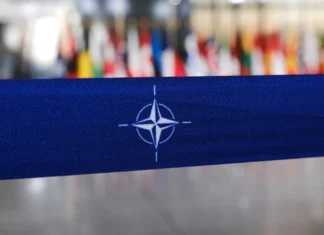In a surprising turn of events, it has been revealed that Israeli officials had planned to assassinate Iran’s Supreme Leader, Ayatollah Ali Khamenei. However, former U.S. President Donald Trump reportedly opposed this drastic action. The news, brought to light by Prime Minister Benjamin Netanyahu, raises significant questions about the dynamics of U.S.-Israeli relations and the ongoing tensions between Israel and Iran.
The incident sheds light on the complexities of geopolitical maneuvers in the Middle East, where the Israeli-Iranian rivalry has escalated in recent years. Iran’s influence in the region, supported by proxy groups and its nuclear ambitions, poses a persistent challenge to Israeli security. Thus, targeting Khamenei, seen as the figurehead of Iran’s hardline political and military stance, could have been viewed as a strategic move to curb Iranian aggression.
However, the opposition from Trump highlights the differing approaches within U.S. leadership regarding Iran. During his presidency, Trump adopted a confrontational stance against Iran, evidenced by withdrawing from the nuclear deal and reimposing economic sanctions. Yet, despite this aggressive posture, he appeared to resist direct military actions that could further escalate conflict, particularly actions that might lead to widespread instability.
Netanyahu’s revelation suggests a potentially strategic interplay where Israel seeks to eliminate threats while navigating the intricacies of American foreign policy. The Israeli Prime Minister has consistently advocated for aggressive strategies to neutralize perceived threats from Iran, which he considers an existential danger. That Trump’s administration would hesitate to endorse an assassination underlines the complexities of alliance politics, where military actions have profound implications for regional stability and international relations.
Moreover, this revelation comes at a critical juncture, as both Iran and Israel continue to engage in a shadow war marked by cyberattacks, military strikes against each other’s assets, and proxy conflicts throughout the region. The assassination plot could have dramatically shifted the balance of power and escalated retaliation from Iran, potentially leading to a larger, uncontrollable conflict in the Middle East.
The Israeli stance towards Iran has always been characterized by caution mixed with aggressive pre-emptive strategies. While many Israeli policymakers view the Iranian regime as a threat to their national security, direct action against Khamenei could have resulted in severe repercussions, including a unified Iranian response across various fronts.
In the broader context, this incident highlights the intricacies involved in decision-making related to foreign interventions, especially in regions rife with conflict. It showcases not just the challenges of orchestrating covert operations but also the necessity of weighing the potential fallout of such decisions, particularly regarding U.S. involvement and support.
As the geopolitical landscape in the Middle East continues to evolve, the relationships between Israel, the United States, and Iran remain critical to understanding regional security dynamics. The information regarding the assassination plot serves as a reminder of the ongoing tensions and the high stakes involved in decisions made by world leaders amidst these enduring conflicts.
In conclusion, Netanyahu’s disclosure about the assassination plan sheds light on the intricate tapestry of Middle Eastern politics, where allies may have divergent views on how best to confront common adversaries. Such revelations prompt a greater examination of how strategies are formulated and the delicate balance that must be maintained in international relations to avoid catastrophic outcomes.






